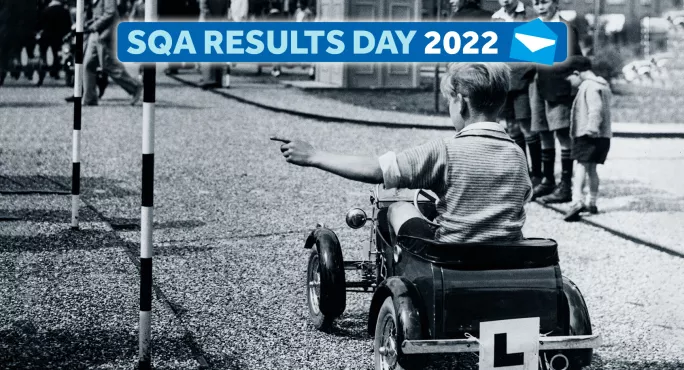Student assessment should not follow the driving test model

On the rickety merry-go-round of blame that often dominates the spot where public policy should be debated, the Scottish Qualifications Authority (SQA) has declared that whatever else is wrong with the education system, it’s not assessment.
The Organisation for Economic Cooperation and Development (OECD) is apparently misguided in identifying a mismatch between the curriculum and national qualifications. In fact, everything is awesome - or would be, if only schools and the teachers in them knew their job (and presumably their place).
In one sense the SQA is right; it’s probably not their fault. If the nation wants a qualifications system that’s based on short-term recall of limited subject knowledge, then SQA has created an assessment system that prioritises that. If we want a system that creates a largely transactional relationship between learning and outcomes, then that’s exactly what we’ve got.
But even if that is indeed what we want, the OECD was right to point out that’s not what we need. No economically successful and culturally vibrant country needs that. Especially if that country is already embarked upon one unprecedented constitutional and economic experiment and is contemplating another.
There are some things that benefit from a closed and transactional approach to both pedagogy and assessment. A good example is the driving test. Both theory and practical components are based on teaching and learning a limited range of facts (contained in The Highway Code) and skills (those associated with safely operating a motor vehicle). The curriculum is finite and, while it is very important that the assessment is accurate, it does not need to be subtle, or indeed finely tuned. A pass just has to mean that you’re safe to drive.
But that’s not a good model for schools. After all, in the real world no one is spending billions on a telescope to explore stars we are already familiar with, or, in any field, rewarding those who come up with the same answer today as everyone else did yesterday.
- Background: The problem isn’t the qualifications - it’s resources, says SQA
- Tes Scotland exclusive: Qualifications review lead Professor Louise Hayward on what happens next
- Also this week: New EIS boss talks pay, gender and closing the gap
- Podcast: What we learned from life in a tiny French village school
The real world prizes open, innovative thinking, seeking to expand understanding in ways that are explicitly unpredictable, creating intellectual and financial value from ideas found at the edges and intersections of things - ideas that are limitless in their application or that persist but adapt over time.
In schools, the best examples of this mindset are often not found in the taught curriculum at all. The range of possibilities provided by outdoor education, proper enterprise education or the experience of visiting a foreign country to speak a foreign language are often transformative for young people. Libraries can be places where pupils discover their own sophisticated understanding among interrelations and coincidences of fact and analysis. Art, design, sport, music and drama - so often under threat in a zero-sum game of curriculum design - nevertheless open up new ways of thinking within their own exacting disciplines.
Newlands Junior College in Glasgow showed what could be achieved by a school that opened up experiences and learning for young people who feel constrained and alienated by school and the conventional curriculum. Its demise was a depressing victory for the closed-mindedness it was seeking to overcome.
So, if education secretary Shirley-Anne Somerville is serious in seeking “fresh, innovative ideas to help to deliver change and drive improvement”, she should dismantle the merry-go-round of blame. She should ensure that the national discussion reflects the desperate need for open thinking and open pedagogies to energise the experience of our children and young people.
Assessment should know its place as the servant - not the purpose - of our education system.
Melvyn Roffe is principal of George Watson’s College in Edinburgh, and chair-elect of the HMC (Headmasters’ and Headmistresses’ Conference) group of independent schools, which this October is holding its annual conference in Edinburgh, jointly organised with the Independent Association of Prep Schools
Register with Tes and you can read two free articles every month plus you'll have access to our range of award-winning newsletters.
topics in this article



